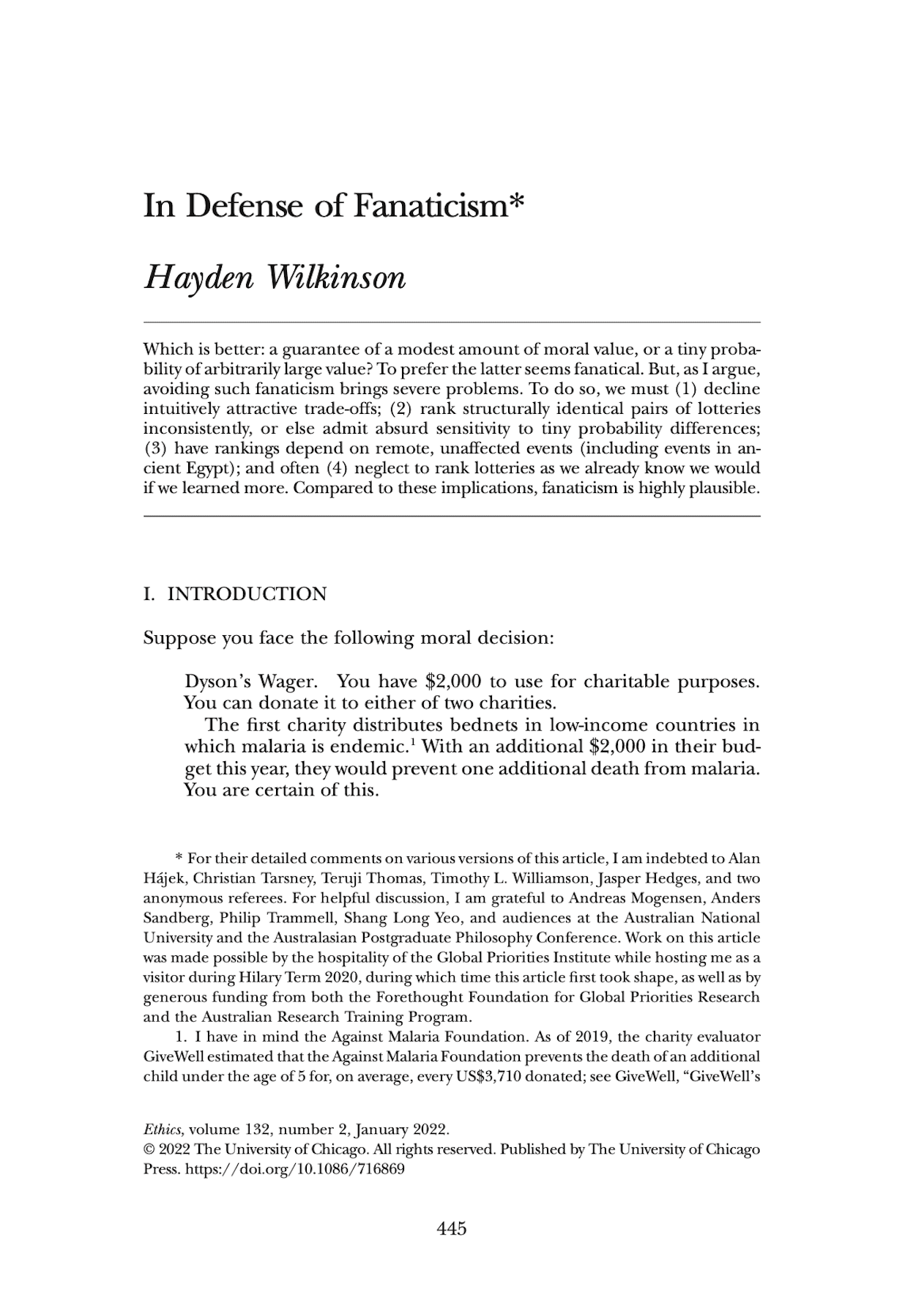In defence of fanaticism
Hayden Wilkinson (Australian National University)
GPI Working Paper No. 4-2020, published in Ethics
Which is better: a guarantee of a modest amount of moral value, or a tiny probability of arbitrarily large value? To prefer the latter seems fanatical. But, as I argue, avoiding such fanaticism brings severe problems. To do so, we must (1) decline intuitively attractive trade-offs; (2) rank structurally identical pairs of lotteries inconsistently, or else admit absurd sensitivity to tiny probability differences;(3) have rankings depend on remote, unaffected events (including events in ancient Egypt); and often (4) neglect to rank lotteries as we already know we would if we learned more. Compared to these implications, fanaticism is highly plausible
Other working papers
Egyptology and Fanaticism – Hayden Wilkinson (Global Priorities Institute, University of Oxford)
Various decision theories share a troubling implication. They imply that, for any finite amount of value, it would be better to wager it all for a vanishingly small probability of some greater value. Counterintuitive as it might be, this fanaticism has seemingly compelling independent arguments in its favour. In this paper, I consider perhaps the most prima facie compelling such argument: an Egyptology argument (an analogue of the Egyptology argument from population ethics). …
Funding public projects: A case for the Nash product rule – Florian Brandl (Stanford University), Felix Brandt (Technische Universität München), Dominik Peters (University of Oxford), Christian Stricker (Technische Universität München) and Warut Suksompong (National University of Singapore)
We study a mechanism design problem where a community of agents wishes to fund public projects via voluntary monetary contributions by the community members. This serves as a model for public expenditure without an exogenously available budget, such as participatory budgeting or voluntary tax programs, as well as donor coordination when interpreting charities as public projects and donations as contributions. Our aim is to identify a mutually beneficial distribution of the individual contributions. …
‘The only ethical argument for positive 𝛿’? – Andreas Mogensen (Global Priorities Institute, Oxford University)
I consider whether a positive rate of pure intergenerational time preference is justifiable in terms of agent-relative moral reasons relating to partiality between generations, an idea I call discounting for kinship. I respond to Parfit’s objections to discounting for kinship, but then highlight a number of apparent limitations of this…

